
Domestic
17:12, 12-Mar-2019
What China judges: The keywords behind China's rule of law
Updated
08:41, 13-Mar-2019
CGTN
01:38
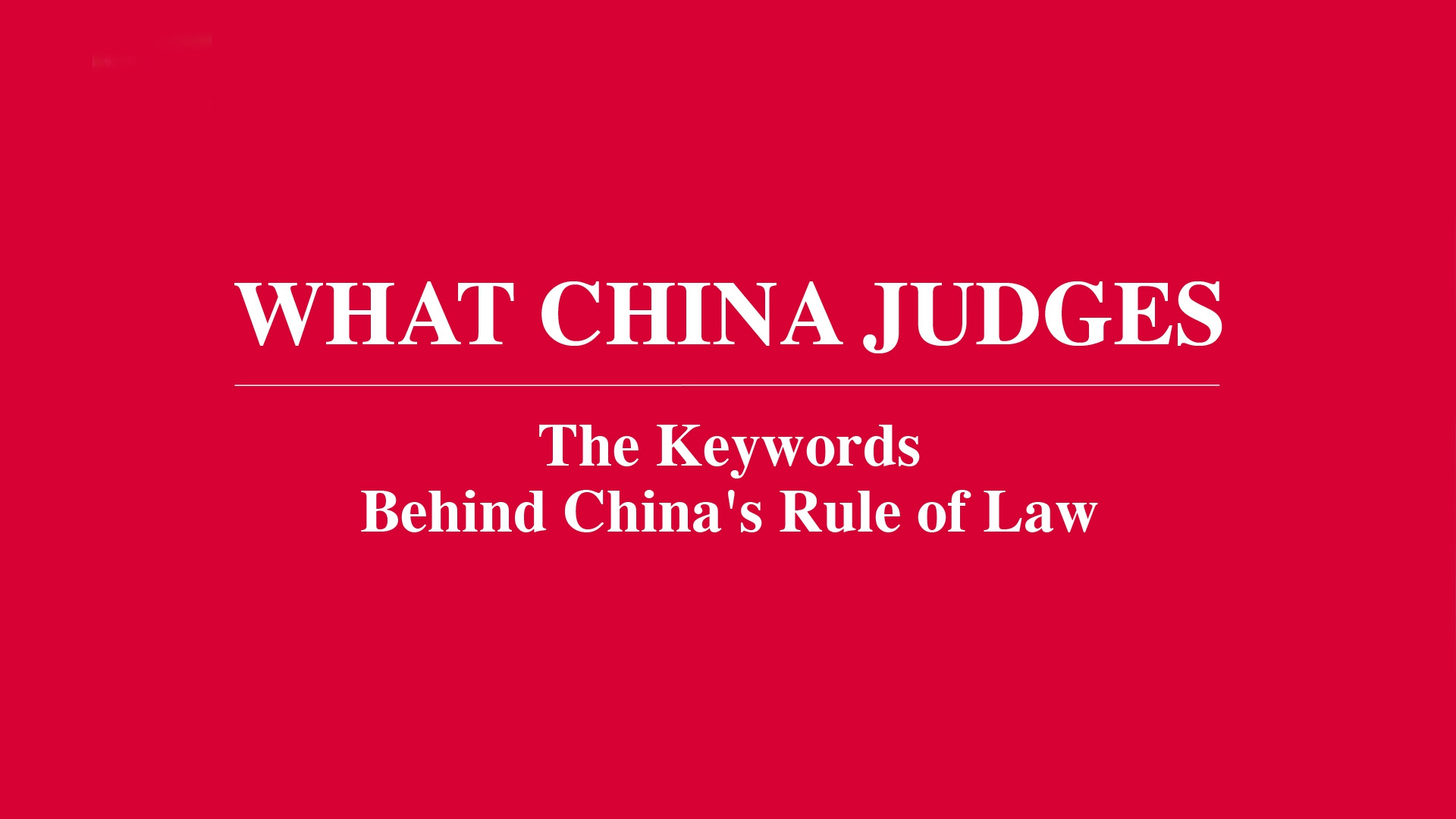
During the third plenary meeting of the second session of the 13th National People's Congress (NPC) held on Tuesday in Beijing, NPC deputies heard the work reports of the Supreme People's Court (SPC) and the Supreme People's Procuratorate (SPP).
The development of China's rule of law is shown in both legal documents, which were first released in 1980.
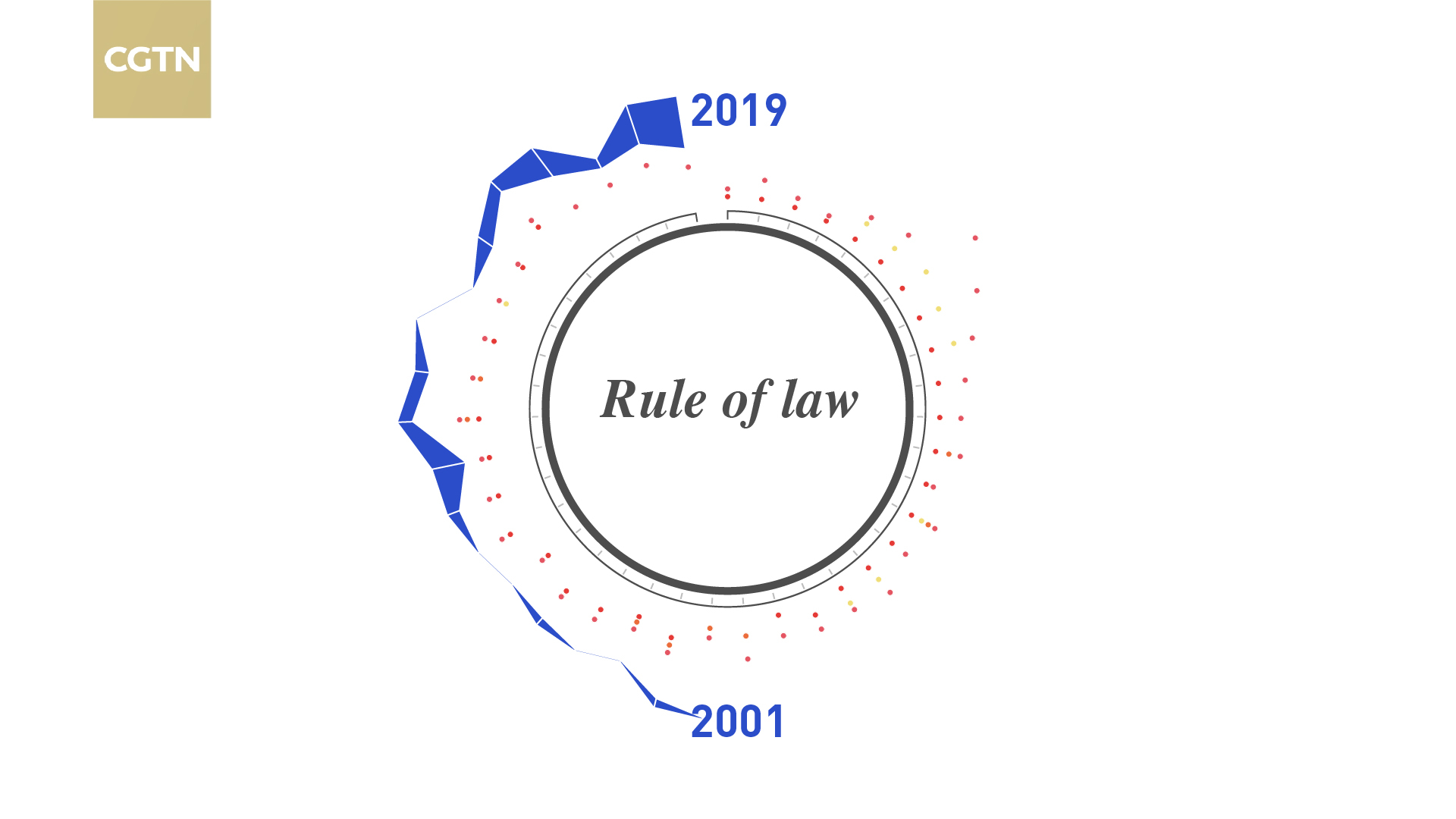
"Rule of law" first became a key phrase for both work reports in 2001 and it has remained that way ever since.

According to the 2019 SPP work report, in 2018, the arrest of more than one million criminal suspects was approved and nearly 1.7 million people were prosecuted, marking a decrease of 2.3 percent and 0.8 percent, respectively, compared to the previous year.
Meanwhile, the latest SPC work report shows in 2018, the Supreme People's Court handled nearly 35,000 cases, among which nearly 32,000 concluded, up 22.1 percent and 23.5 percent year on year, respectively.
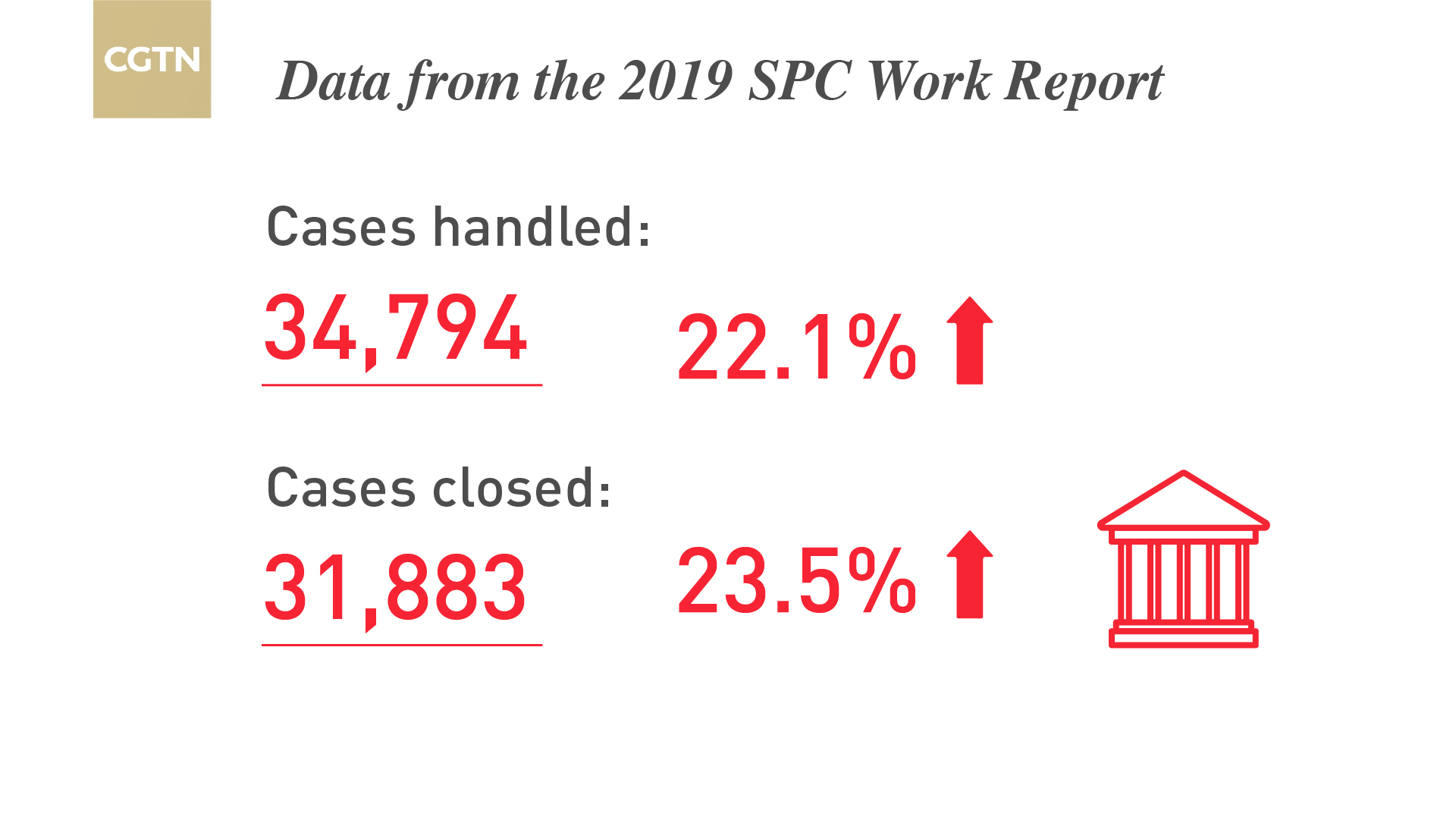
New terms in the SPC work reports reflect the social trends in different times.
For example, among the eight most used terms since 1980, "economy" is the only non-legal one.
In the same span, 63 economy-related words have appeared a total of 1,108 times.
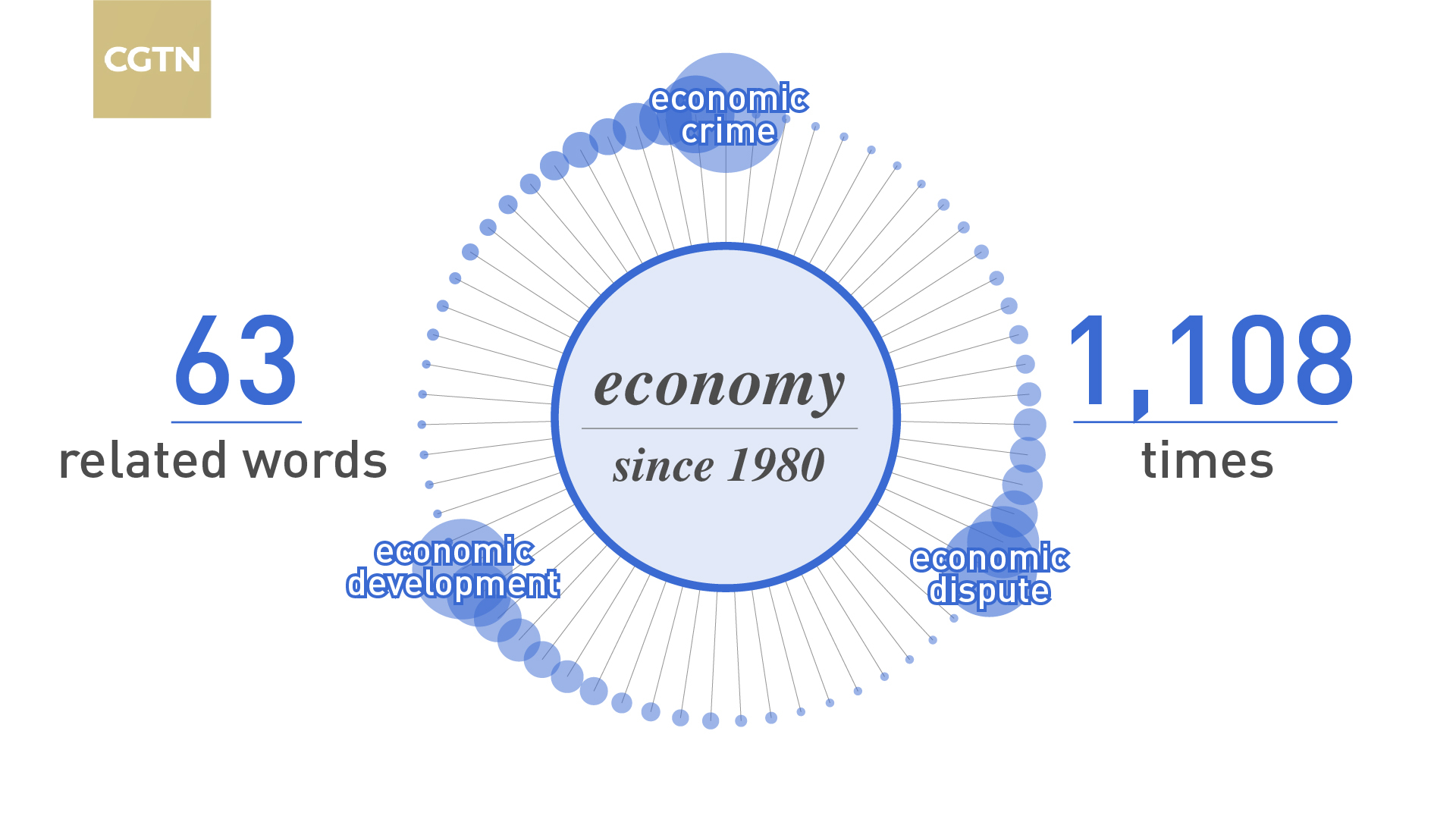
"Work-related crime" has been one of the most used phrases in the SPP work reports since 1997, appearing 335 times.
The number reflects the SPP's intensified anti-corruption drive.
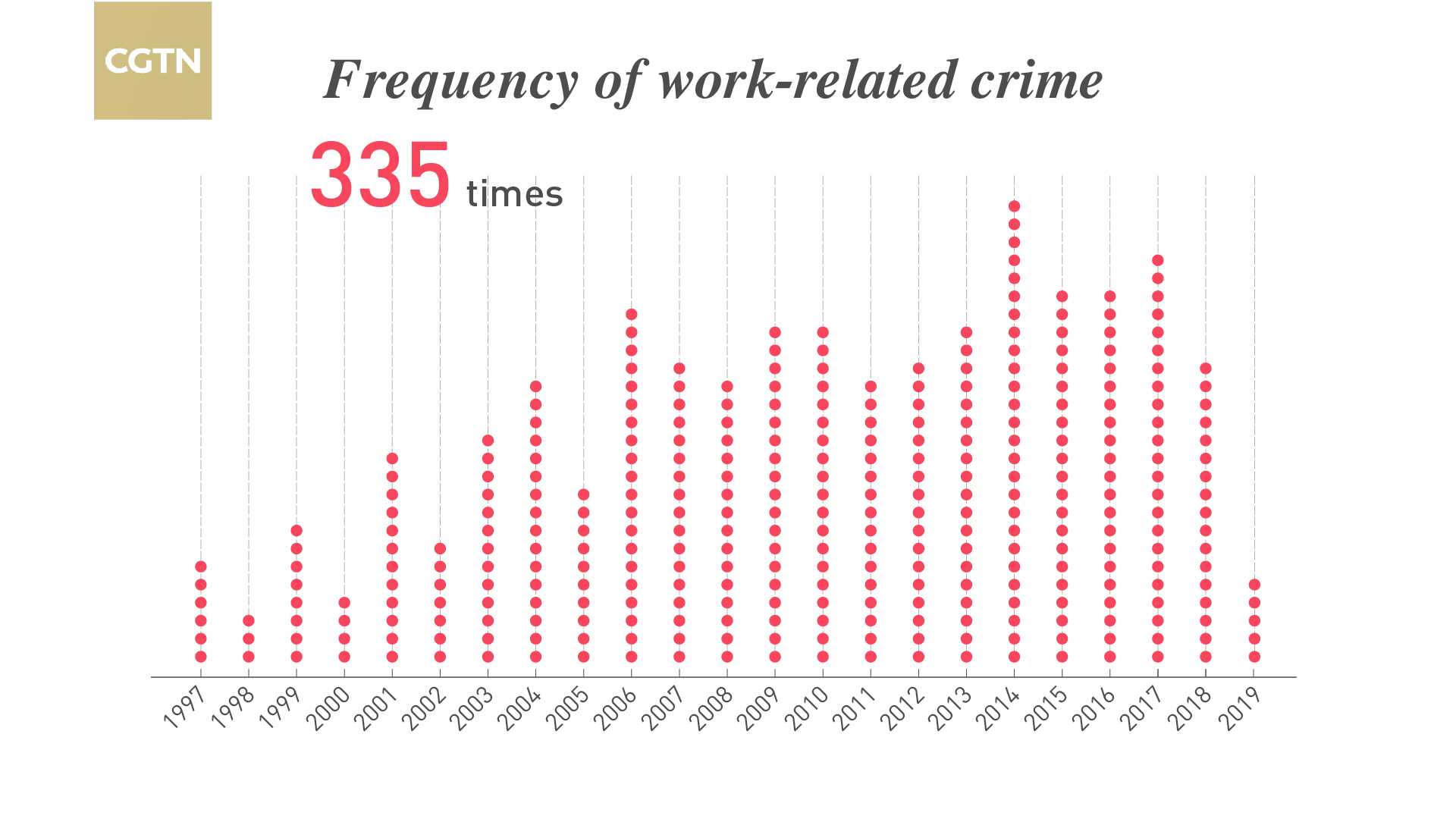
Over the past 40 years, in both reports, there has been an increase in social life-related terms, and a drop in phrases like "cracking down on criminal activities."
Meanwhile, terms concerning economic development, judicial justice and safeguarding people's rights and interests have appeared more often.
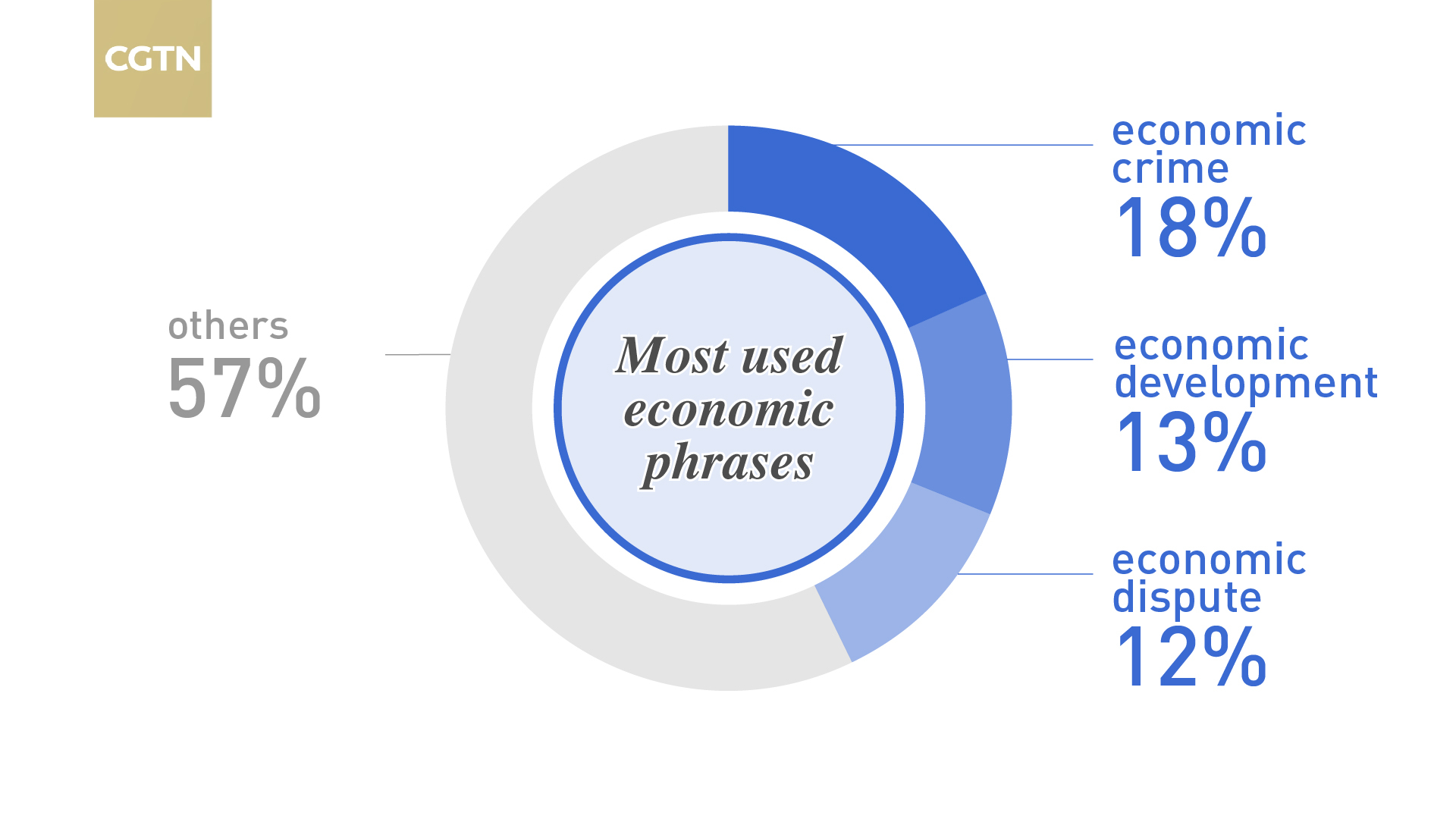
In short, serving the people has always been a focus of China's legal system.

SITEMAP
Copyright © 2018 CGTN. Beijing ICP prepared NO.16065310-3
Copyright © 2018 CGTN. Beijing ICP prepared NO.16065310-3